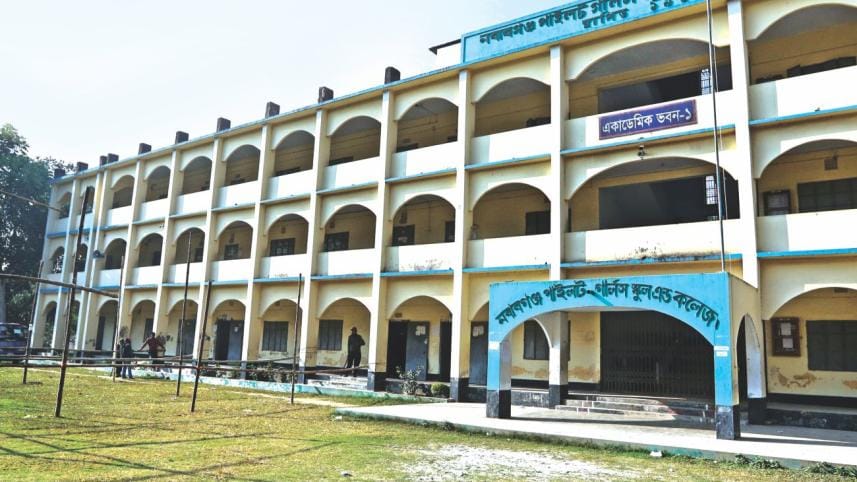Snapshots of Polls Day

An empty playground at the Nawabganj Pilot Girls High School polling centre in Dohar upazila. The photo was taken around 10:00am.
Photo: Sheikh Mehedi Morshed, Orchid Chakma, Prabir Das, Amran Hossain, Sk Enamul Haq

A presiding officer brings out the ballot papers for a voter who uses a wheelchair at Dania College centre in the capital's Jatrabari. Many people with disabilities faced difficulties casting votes as most of the centres were not disabled-friendly.

A police team outside a voting centre in Narayanganj.

Shamim Osman, AL's candidate for Narayanganj-4, sips a cup of tea while exchanging greetings with voters outside a polling centre in Dharmaganj area.

Two first-time voters show off their ink covered thumbs after voting at Avoy Bonodini High School in the capital's Rajarbagh.

Urdu-speaking voters make their way to a voting centre at Dhaka Residential Model College in the capital.

A crowd gathers outside the polling centre at Madhubagh Madrasa in the capital after the Awami League men shut the gate and refused to let anyone in.

Voters checking their phones for their voter numbers at Ali Ahmed Majumder School and College in Dhaka's Goran. Many were turned away after failing to find the number.



 For all latest news, follow The Daily Star's Google News channel.
For all latest news, follow The Daily Star's Google News channel.
Comments